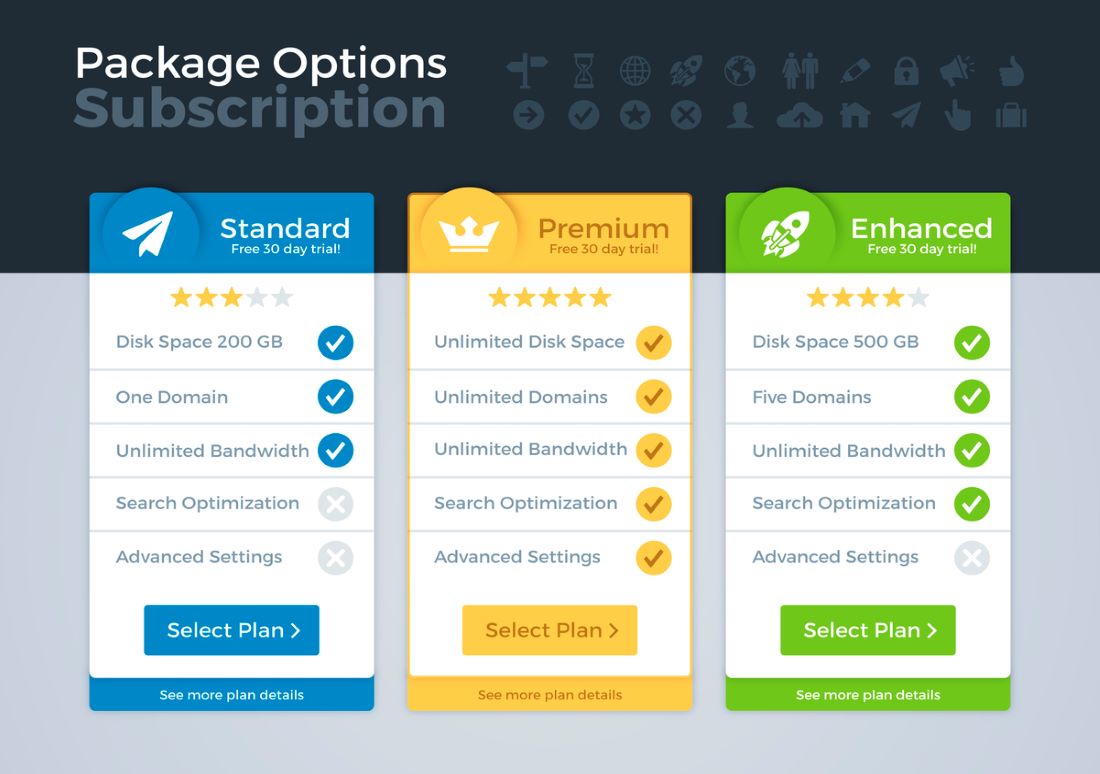
January 13, 2023
A web hosting plan is a service that allows you to store your website and make it accessible to the internet. When you create a website, you need to store the files that make up your website on a server that is connected to the internet. This is where web hosting comes in.
A web hosting plan typically includes
1. Disk space: This is the amount of space that you are allotted to store your website files.
2. Bandwidth: This is the amount of data that can be transferred to and from your website each month.
3. Domain name: This is the address that people use to access your website (e.g. www.yourwebsite.com). Some web hosting plans include a free domain name when you sign up.
4. Email accounts: Many web hosting plans include the ability to create email accounts that are associated with your domain name.
5. Control panel: This is a user-friendly interface that allows you to manage your web hosting account and make changes to your website.
There are different types of web hosting plans available, including shared hosting, VPS (virtual private server) hosting, and dedicated hosting. Each type of hosting has its own set of features and benefits, and it’s important to choose the one that is best suited to your needs.
What factors should you consider before Choosing a Web Hosting Plan for your Website
The web hosting plan you choose will determine how your website performs and how easy it is to manage.
There are many web hosting providers and plans to choose from, and it can be overwhelming to try and figure out which one is the best fit for your needs. To help you make the right choice, here are 10 factors to consider before choosing a web hosting plan
1. Price
One of the first things to consider when choosing a web hosting plan is the price. Different hosting plans come with different price points, so it’s important to determine your budget and find a plan that fits within it. Keep in mind that the cheapest option may not always be the best.
2. Disk space
Another important factor to consider is the amount of disk space you will need to store your website files. If you have a large website with many images and videos, you will need more disk space than a smaller website with just text and a few images. Make sure to choose a hosting plan that provides enough space for your needs.
3. Bandwidth
Bandwidth refers to the amount of data that can be transferred to and from your website each month. If you expect your website to receive a lot of traffic, you will need a hosting plan with higher bandwidth. On the other hand, if you have a small website with minimal traffic, you may not need as much bandwidth.
4. Domain name
Do you already have a domain name, or do you need to register one? Some hosting plans include a free domain name when you sign up, which can save you money. If you already have a domain name, make sure to choose a hosting plan that allows you to use it.
5. Email accounts
Do you need email accounts associated with your domain name? If so, make sure to choose a hosting plan that includes this feature. Having email accounts with your domain name can make your business look more professional and make it easier for people to contact you.
6. Control panel
The control panel is the interface that you use to manage your web hosting account and make changes to your website. It’s important to choose a hosting plan with a user-friendly control panel that is easy to navigate.
7. Customer support
No matter how good a hosting plan is, there may be times when you need help or have questions. That’s why it’s important to choose a hosting provider with reliable customer support. Look for a provider that offers 24/7 support and has a track record of helping customers quickly and effectively.
8. Uptime
Uptime refers to the percentage of time that a server is available and accessible. It’s important to choose a hosting provider with a high uptime guarantee, as downtime can be frustrating for visitors and can impact your search engine rankings.
9. Scalability
As your website grows, you may need to upgrade your hosting plan to accommodate an increase in traffic. Make sure to choose a hosting plan that is scalable, so you can easily upgrade as needed.
10. Security
Security is an important factor to consider when choosing a web hosting plan. Look for a hosting provider that offers measures such as SSL certificates and firewalls to protect your website and your visitors’ information.
In conclusion
In conclusion, choosing the right web hosting plan for your website is essential for the performance and management of your site. By considering factors mentioned above you can find a hosting plan that meets your needs and fits within your budget. Do your research and take the time to find a hosting plan that is the best fit for your website and your business.




No Comments